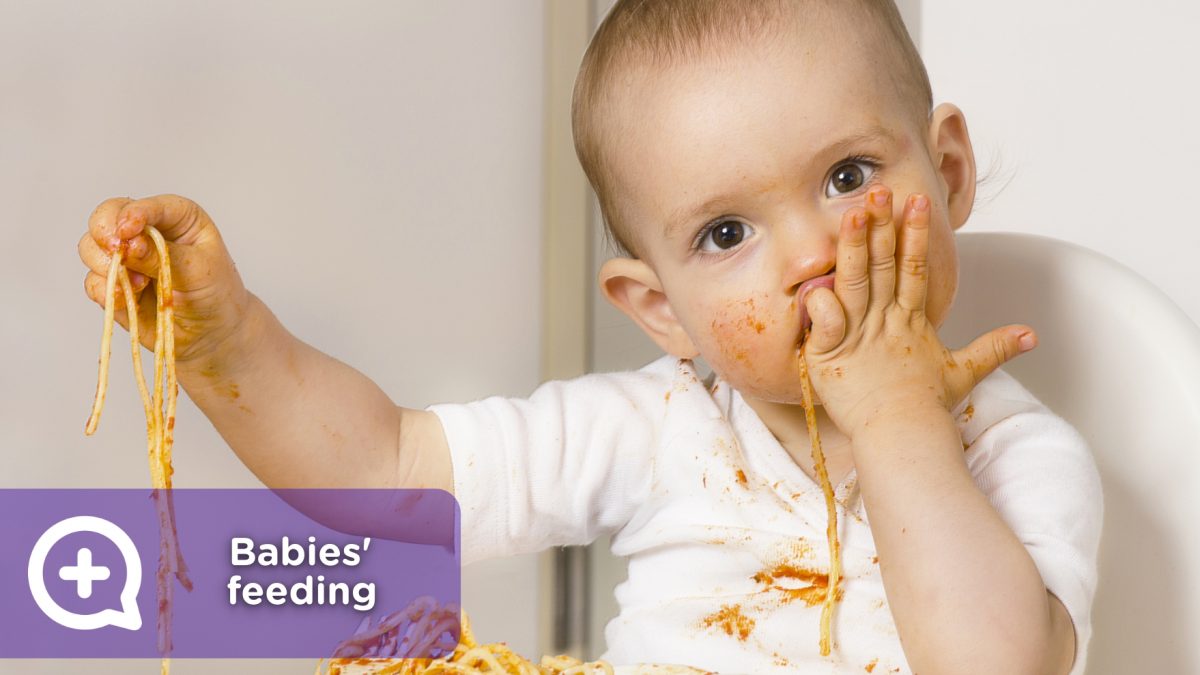Does your baby’s complementary feeding give you a headache? Surely your main concern is if you are giving him everything he needs. But you have nothing to worry about: I am sure you’re doing great. You must bear in mind that the introduction of solid or semi-solid food is a learning process, both for your son or daughter and for you. Meanwhile breastfeeding (or artificial, as the case may be) will continue to be the main source of nutrients for the baby.
You should exclusively breastfeed until 6 months (unless your pediatrician specifically recommends another regimen). Little by little, new foods will be introduced, and your will be able to eat the same as their parents (as long as it is a healthy and balanced diet).
How do you introduce foods?
Your pediatrician or pediatric nurse may propose a certain order to introduce new foods to your baby. We usually start with the mashed vegetables and chicken (without salt or fat, except a little olive oil) in the food and fruit. At other times, the pediatrician may suggest you start with cereals.
In any case, the important thing is to introduce food groups one by one, starting with the easiest to assimilate, and with a difference of between 3 and 5 days between them. This way you can detect possible intolerances or allergies.
This is the approximate order in which new foods for babies are usually introduced:
- Meat, vegetables, fruits and cereals: from 6 months.
- Yogurt, kefir and cheeses: from 7-8 months. If the baby continues with breastfeeding, it is not necessary to give them any other milk. However, if you want to start, there is no problem. Of course, keep in mind that it is not recommended to give liquid cow’s milk until one year of age, because it can be indigestible.
- White fish: from 8 months.
- Egg: from 8-9 months, starting with the yolk. If it does not cause any reaction, we can start to give it also the clear, well done (for example, in French omelette).
- Legumes: from 10 months of age. To begin, it is better to pass them through a strainer to remove the skin and thus avoid indigestion.
Blue fish: from 12 months, and it is better to opt for small fish, such as mackerel or red mullet, to avoid excess mercury.
What is the most important thing I should consider?
In addition to the general guidelines, there are some key aspects you should keep in mind during the introduction of solid foods to your baby:
- If, by your own decision or medical advice, you decide to start with complementary feeding before 6 months, you should keep in mind that cereals should be gluten-free, otherwise it could increase the risk of the baby developing celiac disease later, according to some studies. After 6 months, there is no reason to delay the introduction of gluten in the infant’s diet.
- Some babies may have an allergy to some food, for example, the egg. For this reason, each new food must be given separately and observe the child’s reaction. If they have an allergy, you will immediately notice some symptoms: skin reaction, lips, sudden vomiting, etc. If it happens, go to the health center to assess the symptoms.
- It is not necessary and, in fact, it is not recommended to give babies foods with added sugar such as biscuits or cookies. Honey is not recommended either.
- Salt should not be added to the babies’ food until they are at least 1 year old. Their kidneys are still immature and we should avoid their overexertion.
- It is better to wait until 10-12 months to give them green leafy vegetables (Swiss chard, spinach, cabbage …). They contain a lot of oxalates that may not be eliminated properly.
Patience, there are children who take more time to make certain foods. The important thing is to maintain a balanced diet to avoid the risk of suffering from childhood obesity.
*Content validated by the mediQuo medical team.



